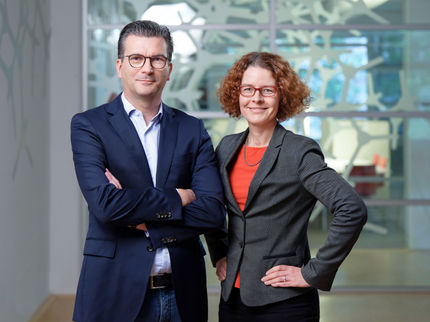Dow Chemical Awards "Methane Challenge" Grants to Cardiff and Northwestern Universities
Advertisement
The Dow Chemical Company announced that Cardiff University and Northwestern University have been awarded research grants which together total over $6.4 million as part of the 2007 Dow methane Challenge. The challenge was initiated by Dow in March 2007 to identify collaborators and approaches in the area of methane conversion to chemicals. The awards to the teams led by Cardiff and Northwestern mark the culmination of the selection process.
Approximately 100 proposals from around the world were received in response to Dow's open solicitation, representing top universities, institutes, and companies. The focus of the challenge was the conversion of methane, the major component of natural gas, to chemical feedstocks. Methane is particularly attractive as a raw material because of the presence of large reserves of natural gas in many parts of the world, but the technology for the conversion of these reserves to chemicals and liquid fuels remains elusive. Dow's goal is to develop technologies to take natural gas and produce the intermediates that form the foundation of today's chemical industry.
The Methane Challenge seeks to discover revolutionary chemical processes. Mastery of methane chemistry would provide a completely new foundation for production of chemicals and liquid fuels, bringing an alternative to petroleum in these applications and enabling the use of plentiful, though often remote, natural gas that today is uneconomical to transport to market. It could also reduce the flaring of gas associated with petroleum production and might even provide a means to upgrade landfill gas.
Methane has resisted the attempts of chemists over the last century to directly react and selectively form other chemicals. Recognizing the need for creative approaches, Dow Chemical took the unusual step of undertaking an open solicitation in an attempt to leave no stone unturned in the quest for innovative concepts. By bringing together its chemists and chemical engineers with the teams led by Cardiff and Northwestern, Dow hopes to develop world-changing technologies.
Proposals were evaluated and the ten finalists were asked to submit detailed, confidential proposals. Consultants hired to judge the proposals selected the teams led by Cardiff and Northwestern. While Cardiff and Northwestern are the homes of the team leaders, both teams have sought expertise outside their university communities and are multi-institutional, multi-disciplinary teams.
"Success in this project has the potential to change the way we manufacture chemical intermediates in a revolutionary way," says Graham Hutchings, leader of the Cardiff team. "The direct oxidation of methane to methanol and other useful products represents the most important remaining grand challenge in catalysis."
"It is remarkable that a molecule as simple and abundant as methane should present such an obstacle to conventional catalytic methodologies," adds Tobin Marks, Northwestern team leader. "Clearly, unconventional, science-based approaches will be required to produce catalysts with the necessary activity and selectivity."




























































